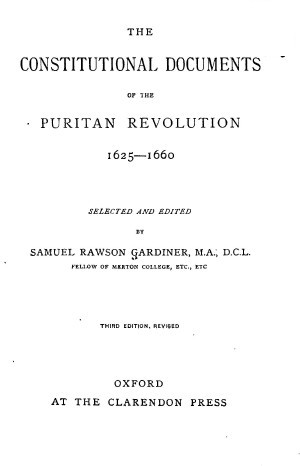
The Constitutional Documents of the Puritan Revolution, 1625-1660
- Samuel Rawson Gardiner (editor)
A collection of constitutional documents from the English Revolution of the mid-17th century. They include parliamentary speeches, letters and declarations by the monarch, legal proceedings, and other documents. They are preceded by a lengthy scholarly introduction which places them in their historical context.